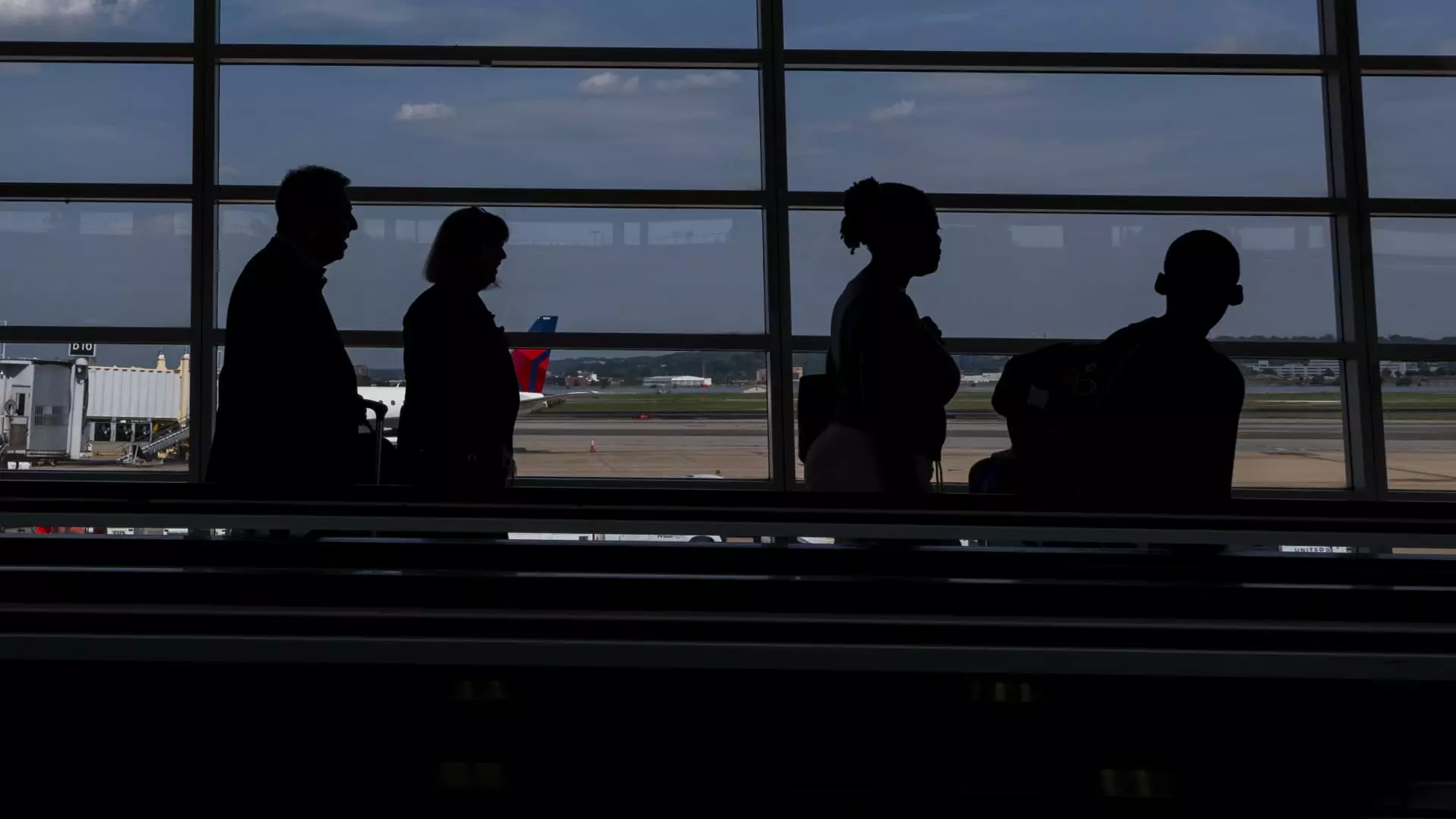As the holiday season approaches, many families are re-evaluating their travel plans, driven by concerns about potential unrest tied to the upcoming elections. Emily Reeve, a 32-year-old mother, expressed the shifting dynamics faced by families today. Traditionally, Reeve and her husband would look forward to spending Thanksgiving in picturesque locations like Hawaii or Disneyland, but circumstances have compelled them to remain in their Portland, Oregon home. The couple’s decision is heavily influenced by the birth of their toddler, leading to fears of encountering disruptions during travel in an increasingly polarized environment.
The rising anxiety reflects a broader societal concern, as many Americans are apprehensive about the potential for unrest surrounding the electoral outcome. With no family nearby to celebrate with, Reeve articulated a prevalent worry: being caught in airports or crowded tourist destinations where riots or protests may arise. The reluctance to travel during such a tumultuous period is echoed by various industry experts and travel agents who note a palpable sense of unease among travelers.
In response to this mood, industry predictions suggest a significant impact on consumer behavior. Delta Air Lines CEO Ed Bastian pointed to a historical trend indicating that travelers typically prefer staying close to home during election periods. He anticipates a pause in travel activities as people desire to avoid the uncertainty associated with the electoral process. The data confirms a notable shift, with consumers preferring to remain in familiar environments as opposed to venturing into the unknown.
An alarming statistic from a recent survey by the travel site Vacationer revealed that approximately 64% of U.S. adults are avoiding domestic travel due to fears of civil unrest, depending on election results. This apprehension manifests in many forms; for instance, a significant number stated they would stay home only if certain political candidates are elected, showcasing how closely personal comfort is tied to political outcomes. Interestingly, nearly 36% indicated that political outcomes would not deter their holiday travel plans, reflecting a divide in public sentiment.
In the realm of corporate travel, these anxieties are more pronounced. According to Kelly Soderlund of Navan, there has been a noteworthy 19% decrease in domestic flight bookings compared to last year coinciding with the election week. However, a surge in bookings for the following week hints at a rebound once the election concludes. This paradox highlights the delicate balance that businesses must maintain between ensuring employee safety and fostering a culture of travel that promotes connectivity and collaboration.
As ramifications from the election loom, many businesses are putting precautionary measures into place, especially those linked to the federal government. Kimberly Kracun, a travel agency owner, revealed that concerns regarding government furloughs have led families to postpone their long-awaited vacations, further illustrating how intertwined political dynamics are with the travel industry.
The prospect of political discussions at family gatherings also raises concerns for travelers. While around 22% of those polled do not anticipate political disagreements during family reunions this year, younger generations show a heightened level of concern. Around 38% of Gen Z and 29% of millennials fear that tensions could escalate during political discussions, compared to a mere 11% of Baby Boomers. This generational divide highlights how differing political landscapes impact family dynamics and relationships.
The journey of travel and subsequent gatherings is fraught with potential conflict, with some families opting to forego their traditional reunions entirely. For example, Chirag Panchal, a luxury travel agent, noted that one family decided to cancel their Thanksgiving plans due to apprehensions about political friction, showcasing how political divisions permeate even the most cherished traditions.
Ultimately, the intersection of travel and the electoral process creates a complex tapestry of emotions and decisions for many Americans. As families weigh the pros and cons of holiday plans, it becomes clear that the landscape of travel is shifting not only due to external factors such as cost and convenience but also significantly due to political unease. The decision to travel, often associated with joy and family togetherness, is being overshadowed by concerns about safety and the potential for unrest. The question moving forward will not only be how people navigate their travel plans but how they rebuild their traditions in an increasingly divided society.


Leave a Reply